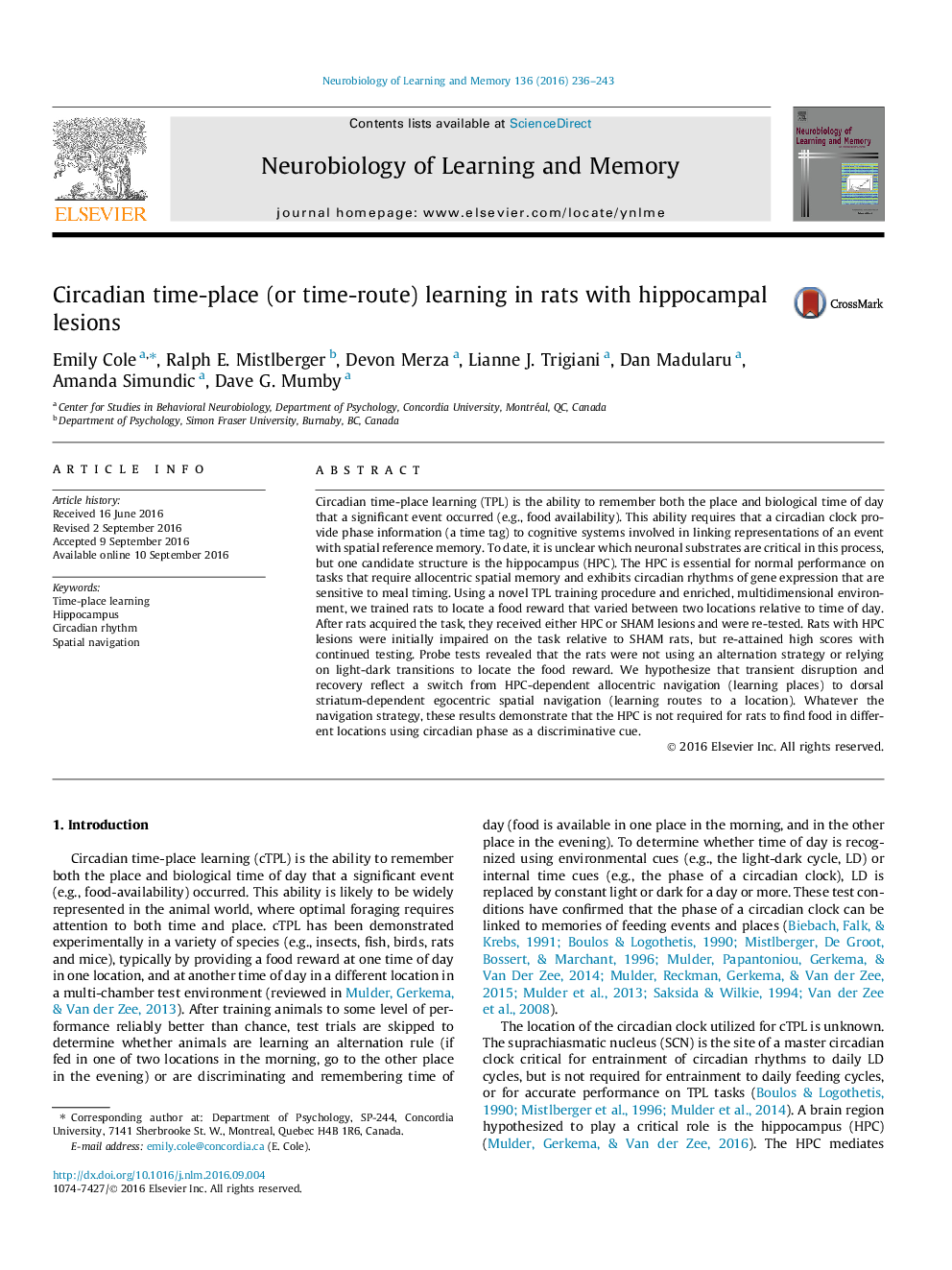| کد مقاله | کد نشریه | سال انتشار | مقاله انگلیسی | نسخه تمام متن |
|---|---|---|---|---|
| 5043259 | 1475138 | 2016 | 8 صفحه PDF | دانلود رایگان |
- Rats were trained on a novel circadian TPL task.
- Rats received HPC lesions and exhibited only a transient impairment on the task.
- The results may reflect a switch from allocentric to egocentric based navigation.
- The HPC is not crucial for providing circadian time cues to perform this TPL task.
Circadian time-place learning (TPL) is the ability to remember both the place and biological time of day that a significant event occurred (e.g., food availability). This ability requires that a circadian clock provide phase information (a time tag) to cognitive systems involved in linking representations of an event with spatial reference memory. To date, it is unclear which neuronal substrates are critical in this process, but one candidate structure is the hippocampus (HPC). The HPC is essential for normal performance on tasks that require allocentric spatial memory and exhibits circadian rhythms of gene expression that are sensitive to meal timing. Using a novel TPL training procedure and enriched, multidimensional environment, we trained rats to locate a food reward that varied between two locations relative to time of day. After rats acquired the task, they received either HPC or SHAM lesions and were re-tested. Rats with HPC lesions were initially impaired on the task relative to SHAM rats, but re-attained high scores with continued testing. Probe tests revealed that the rats were not using an alternation strategy or relying on light-dark transitions to locate the food reward. We hypothesize that transient disruption and recovery reflect a switch from HPC-dependent allocentric navigation (learning places) to dorsal striatum-dependent egocentric spatial navigation (learning routes to a location). Whatever the navigation strategy, these results demonstrate that the HPC is not required for rats to find food in different locations using circadian phase as a discriminative cue.
Journal: Neurobiology of Learning and Memory - Volume 136, December 2016, Pages 236-243
